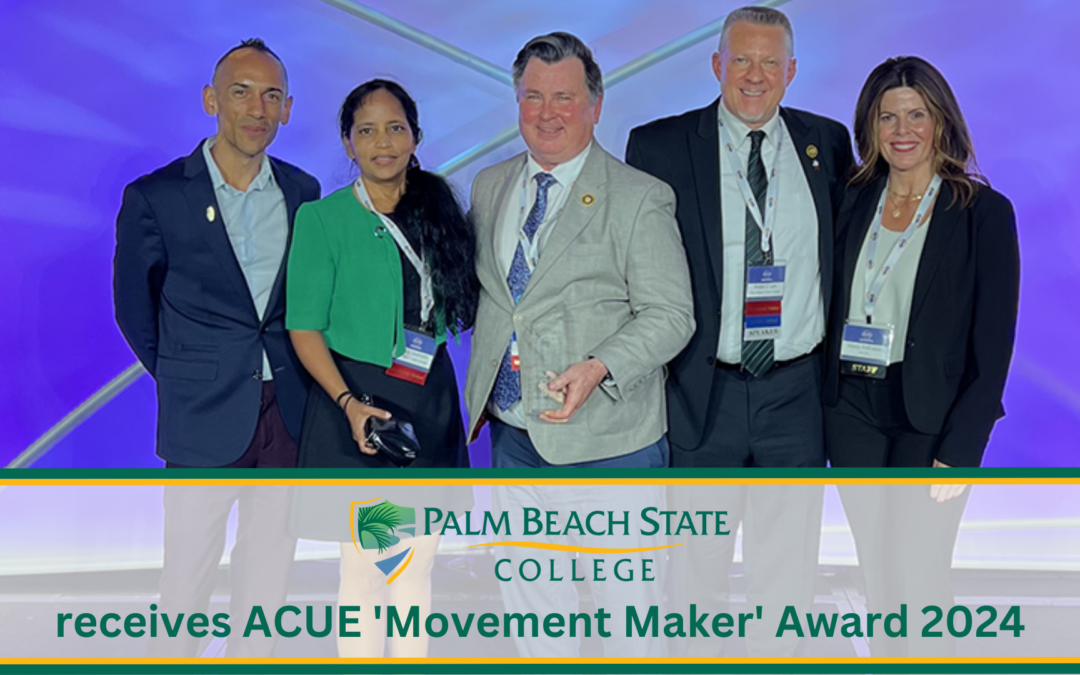
by Nikki Cabus | Jul 8, 2024 | Blog
Palm Beach State College (PBSC) was recognized by the Association of College and University Educators as a 2024 ‘Movement Maker’ institution. The Association of College and University Educators (ACUE) is on a mission to ensure student success through...

by Jeff Kurzner | Mar 3, 2024 | Blog
One of the leading global minds on innovation and technology, Gary Vaynerchuk will be coming to West Palm Beach in April! Gary Vaynerchuk or “GaryVee†as he is known will be the keynote speaker at Palm Beach State College Foundation’s Yvonne S. Boice STEAM...
by Jeff Kurzner | Feb 19, 2024 | Blog
On Friday, Feb. 2, Florida Governor Ron DeSantis announced Palm Beach State College will receive nearly $4 million in federal funding to transform the Belle Glade campus into an innovative digital hub for students and the local community. “Palm Beach State...
by Jeff Kurzner | Jan 19, 2024 | Blog
The Stephen M. Ross Emerging Scholars Program at Palm Beach State College, created by Related Companies, was announced last month during a ceremony at Gaines Park in West Palm Beach. The $8 million gift will support West Palm Beach students in grades 7-12 and follow...

by Nikki Cabus | Jan 24, 2023 | Blog
Palm Beach State College recently announced was approved as a designated Center for Academic Excellence in Cyber Defense (CAE-CD). The CAE-CD program focuses on providing a cybersecurity workforce to meet the needs of the nation, government, industry, and academia....




